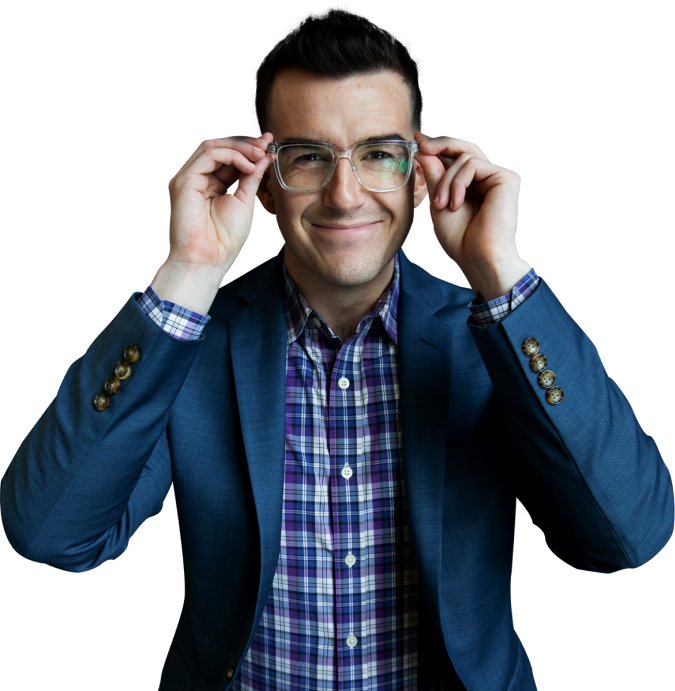Overwhelmed by all the tech in your life, but still need it to function at home or at work? Same.
Many people feel overwhelmed and distracted by digital devices and ever-increasing online presence. Nielsen data has found that users spend over seven hours a day on devices, with the total screen time actually being higher because people often have two or more screens going at once.
Cal Newport’s Digital Minimalism: Choosing a Focused Life in a Noisy World offers a thoughtful perspective on this issue and provides practical strategies and real-life examples for living better with technology. Published in 2019, this book makes a compelling case that our relationship with digital communication tools is broken—but there are ways to fix it and live more intentionally.
The central idea of digital minimalism is that less can be more when it comes to technology. By being selective about the digital tools we use and deliberately limiting our time on them, Newport argues that we can focus our energy on what really matters to us—things like relationships, passions, and meaningful leisure. The book lays out his recommended "digital declutter" process as well as principles for being a digital minimalist.
Key Takeaways
- The book raises important concerns about the engineered addictiveness and "attention economy" business model of many digital products and services.
- Newport makes a convincing case that if we're not intentional, these tools can fragment our attention, drain our time, and leave us feeling anxious and dissatisfied.
- Digital minimalism is presented as an alternative, empowering approach.
Newport, an associate professor of computer science at Georgetown University, is no stranger to the topic of technology and productivity. He previously authored the popular books Deep Work and So Good They Can't Ignore You. In this book, he turns his attention to the digital minimalism philosophy and how we can take back control of our time and attention in an increasingly noisy world dominated by smartphone giants and social media companies.
About the Author: Cal Newport

A computer science professor and productivity author, Newport has established himself as a leading thinker on the intersection of work, technology, and focus in the digital age. In addition to earning his PhD from MIT, he has won a number of awards for his research. Newport has gained a devoted following through his thoughtful and counterintuitive takes on work and technology. His previous books tackle related issues and have resonated with many readers.
Cal Newport’s Digital Minimalism carries on this throughline of doing focused, high-quality work in a distraction-filled world.
Why Digital Minimalism Matters in a Noisy World
Newport's book clearly struck a chord, remaining on bestseller lists for months after its 2019 release. And it makes sense why: Many people are fed up with the negative effects of tech overload on their productivity, relationships, and mental health. We've seen a growing backlash against personal tech and calls for digital detox in recent years as the dark sides of chronic connectivity become more apparent.
Social media obsession often comes at the expense of focus, presence, and peace of mind in the real world. In some ways, our digital life feels as busy as our day-to-day life in the physical world. Newport offers an appealing alternative vision, one where we live a focused life and are in control of how we use technology, not the other way around.
Choosing a Focused Life
Digital Minimalism is a well-argued and worthwhile read for anyone feeling uneasy about their personal technology habits. Newport's writing is clear and relatable, weaving together philosophy, history, and actionable advice.
The main strength is that it goes beyond surface-level tips to really grapple with the meaning of technology in our lives. Rather than just suggesting a 30-day digital detox, Newport makes a strong case for adopting digital minimalism as a long-term philosophy in one’s own life.
The book's main limitation is that at times it may paint with too broad a brush in dismissing the value of activities like social media use. Also, not everyone will be willing or able to implement the fairly drastic "digital declutter" process Newport recommends, which involves cutting out all optional online activities for 30 days. A more gradual on-ramp to digital minimalism may be better for some.
Embrace Digital Declutter
These quibbles aside, Digital Minimalism is a timely and enlightening book that will benefit anyone looking to have a healthier relationship with technology, be more present, or improve their focus in work and life.
If you've ever felt that sinking feeling after getting sucked into an hour of aimless smartphone scrolling—or wondered if there's more to life than staring at screens—this book is well worth picking up. It will challenge your assumptions, make you rethink your digital habits, and give you a renewed sense of agency over your time and attention. Digital Minimalism is an important guide to helping us do that with more intention, balance, and joy. ⬥


